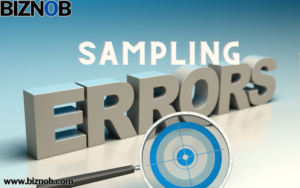What is Series 9/10?
A two-part securities test and license known as Series 9/10 give the bearer the authority to oversee sales activity in a branch office focusing on general securities. A candidate must have a Series 7 license before completing the Series 9/10 Exams, often known as the General Securities Sales Supervisor Qualification Exams.
Topics, including general securities sales and trading activities in primary and secondary markets and the supervision of options, are covered in Series 9/10. The Financial Industry Regulatory Authority (FINRA) currently administers the Series 9/10 tests, formerly the Series 8 Exam. The test is divided into two halves, as the name would imply. The shorter component, Series 9, covers options trading, sales, administration, and regulation. Series 10 offers a deeper exploration of a comparable but broader variety of subjects and prerequisites.
Series 9/10 Permitted Activities
The purpose of Series 9/10 is to safeguard investors by evaluating General Securities Sales Supervisors’ proficiency and verifying their knowledge in the following domains:
Corporate securities, rights, warrants, closed-end funds, money market funds, REITs, corporate mortgage-backed securities, equity options, options on (corporate) backed securities, mutual funds, variable annuities, variable life insurance, government securities, reports and certificates of accrual on government securities, and direct participation programs are among the products and services offered for sale.
Series 9/10 Qualification
Prospective Series 9/10 candidates must have completed the Series 7 General Securities Representative exam and be registered with a FINRA member firm or another self-regulatory entity.
Content of Series 9/10 Tests
Two hundred and fifteen multiple-choice questions covering four primary subject areas make up the Series 9/10 Exam. There are sixty questions in Series 9 and 145 questions in Series 10. There are fifteen unscored questions—five from Series 9 and ten from Series 10—randomly distributed across each section. Candidates have four hours to complete Series 10 and ninety minutes to conclude Series 9. Candidates should try to respond to each question since there is no penalty for guessing. Passing the computer-based exam requires a score of at least 70%. See FINRA’s Content Outline for Series 9/10 for further information about the test.
New regulations and modifications sometimes result in questions being updated or altered. The job functions that the exam tests cover are shown below, along with the quantity of scored questions that pertain to that function:
Part 1 of Series 10:
- Function 1: Oversee related parties and personnel administration tasks (28 questions)
- Function 2: Manage the creation and upkeep of client accounts (49 questions)
- Function 3: Manage general trade operations and sales procedures (52 questions)
- Function 4: Oversee public relations communications
Part 2 of Series 9:
- Function 1: oversee the creation and upkeep of client options accounts (18 questions)
- Function 2: Oversee general options trading operations and sales procedures (19 questions)
- Function 3: Oversee conversations about possibilities (5 questions)
- Function 4: Oversee related parties and personnel administration tasks (13 questions)
- Sample Questions for the Series 9/10 Exam
FINRA has provided the sample questions and formats and the subject matter that a Series 9/10 test-taker might anticipate below. An asterisk denotes the correct responses:
Example 1: Which item falls within the category of retail communication?
(A) A daily electronic notification sent to institutional investors
(B) Daily interactions via social media with institutional investors
(C) Within 30 days, ten retail investors received written correspondence.
(D) A written letter sent within a 30-day window to over 25 retail investors
Example 2: An office of supervisory jurisdiction (OSJ) must be inspected by a competent person at the very least
(A) Every three months
(B) Every year
(C) Every two years
(D) Every three years
Example 3: Which of the following events in the underlying securities would not result in an adjustment to the listed equity options?
(A) A split of stocks from from 2 to 1.
(B) Reversing the stock split, 1 for 5
(C) A 5% dividend on stocks
(D) A $0.50* cash dividend
The Distinctions Between Series 24 and Series 9/10
A principal must pass Series 9/10 and 24 tests to engage in certain sales activities.
The following sales activities may be overseen by a principal who has passed the Series 24 test, according to the Financial Industry Regulatory Authority (FINRA):
“Corporate securities; rights; warrants; closed-end funds; money market funds; REITS; asset-backed securities; (corporate) mortgage-backed securities; mutual funds; variable annuities and variable life insurance; direct participation programs; securities traders; venture capital; mergers and acquisitions; and corporate financing.”
A principal who has passed the Series 24 test is eligible to oversee not just sales but also the whole investment banking and securities activity of a member company, according to FINRA.
After passing the more comprehensive Series 9/10 exam, a principal is eligible to oversee sales of the securities above and equity options, options on [corporate] mortgage-backed securities, government securities, reports and certificates of accrual on government securities, municipal securities, and municipal fund securities. This qualification excludes securities traders, venture capitalists, and those involved in mergers and acquisitions and corporate financing.












































